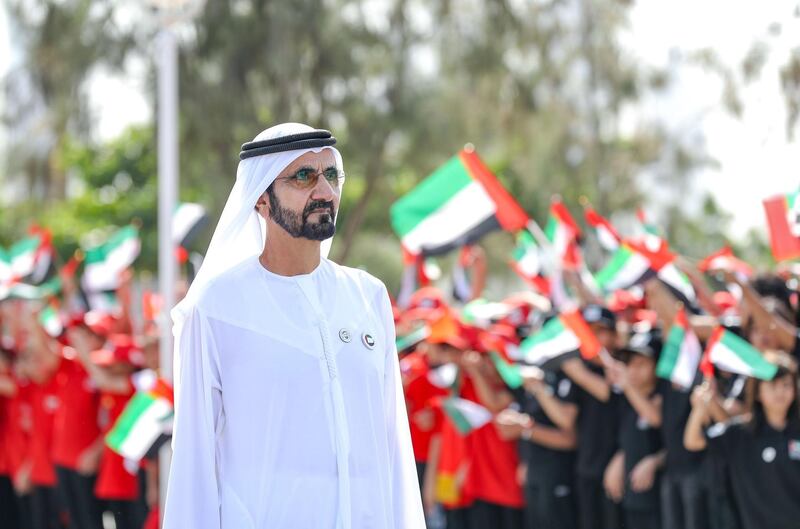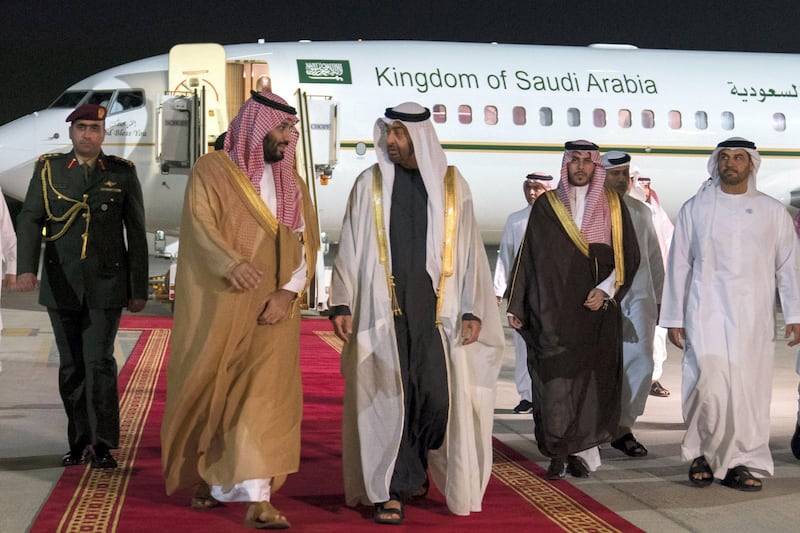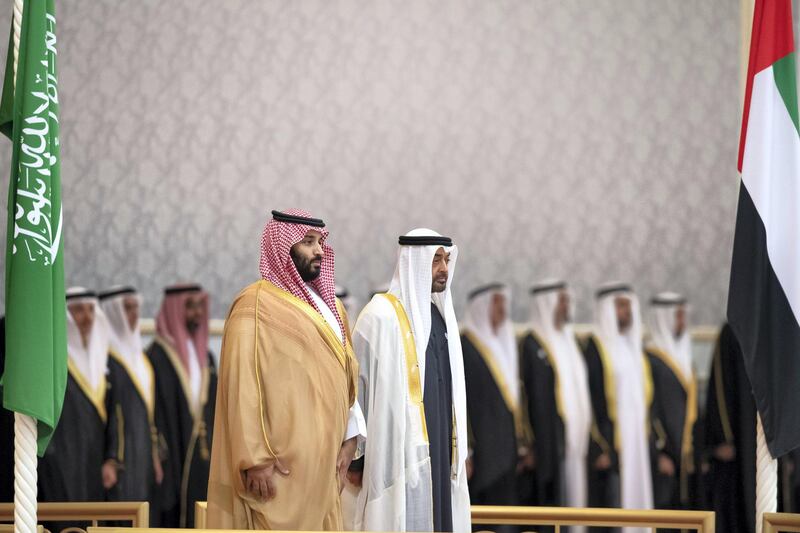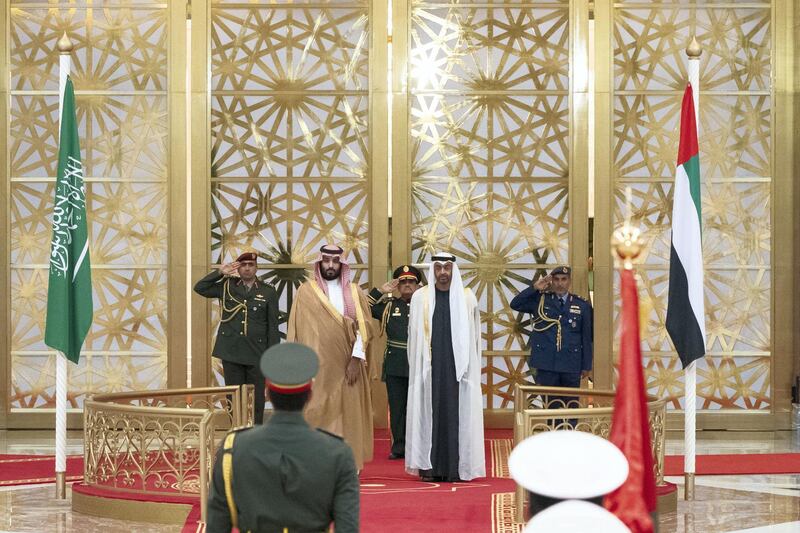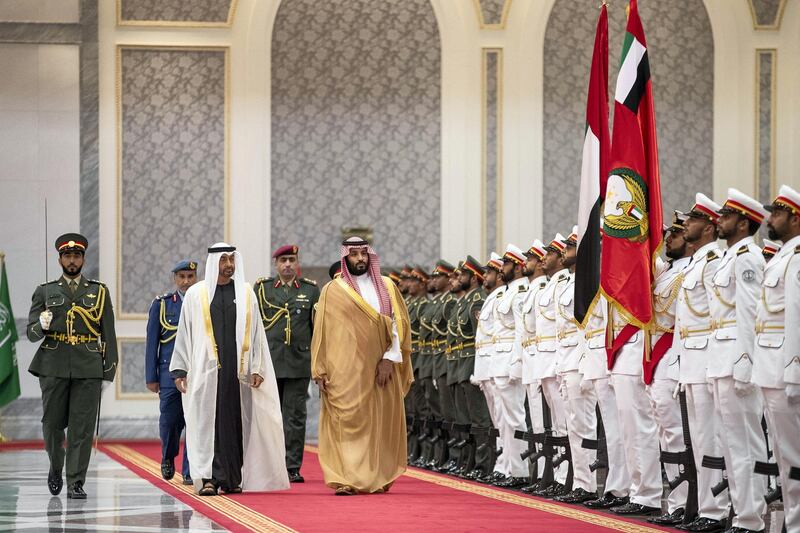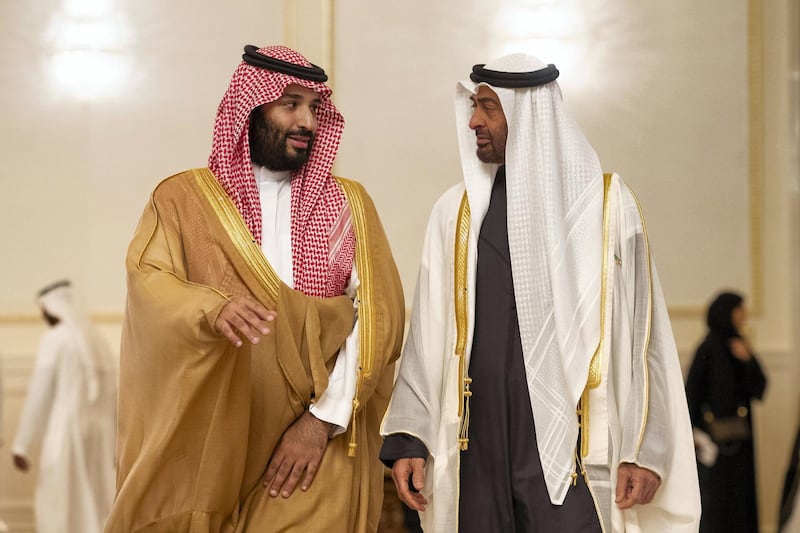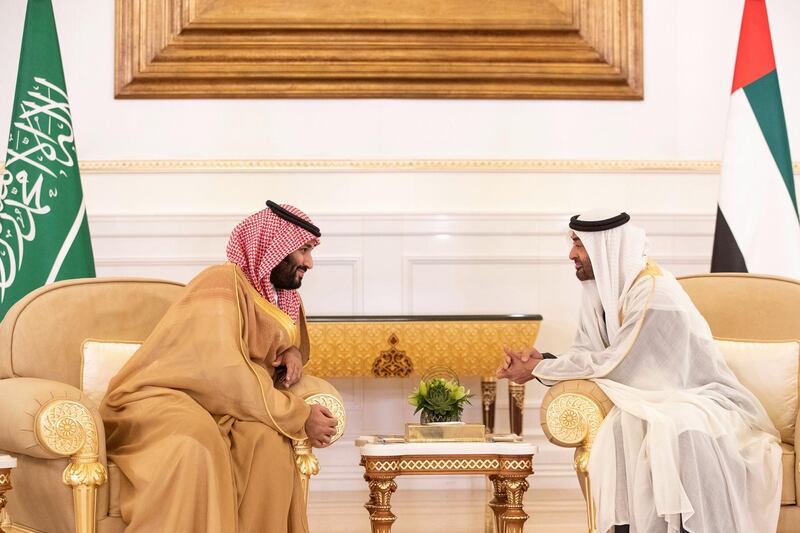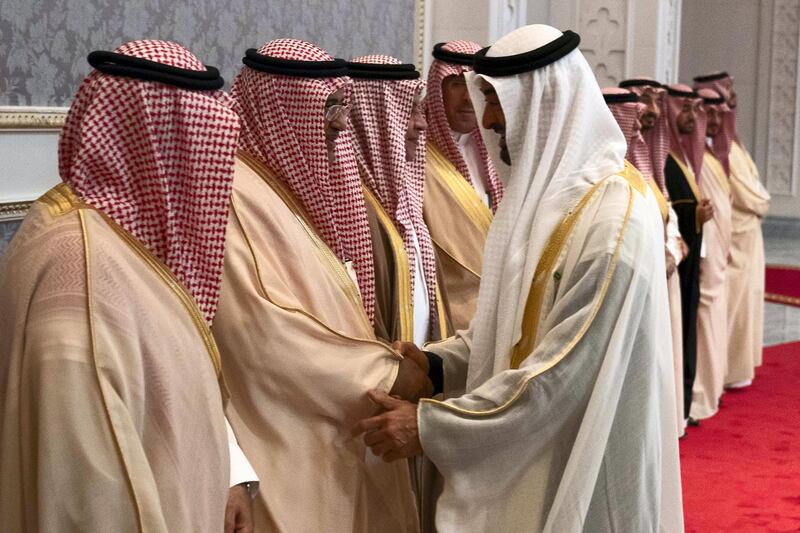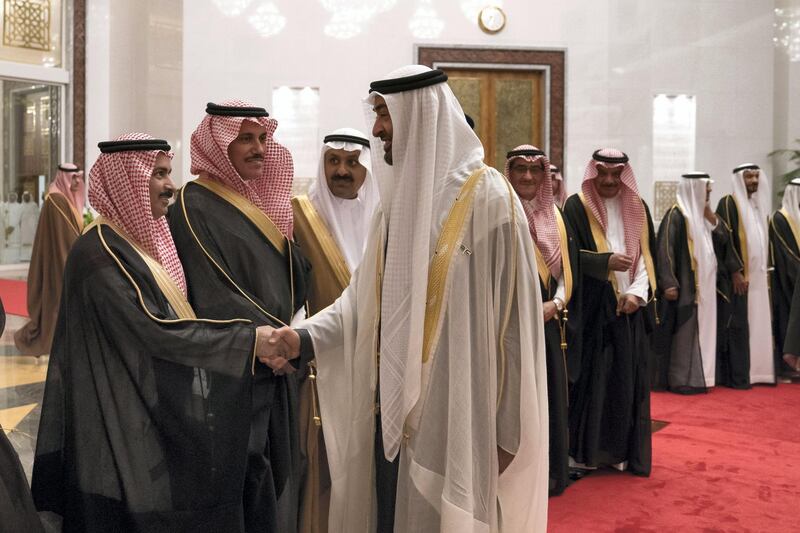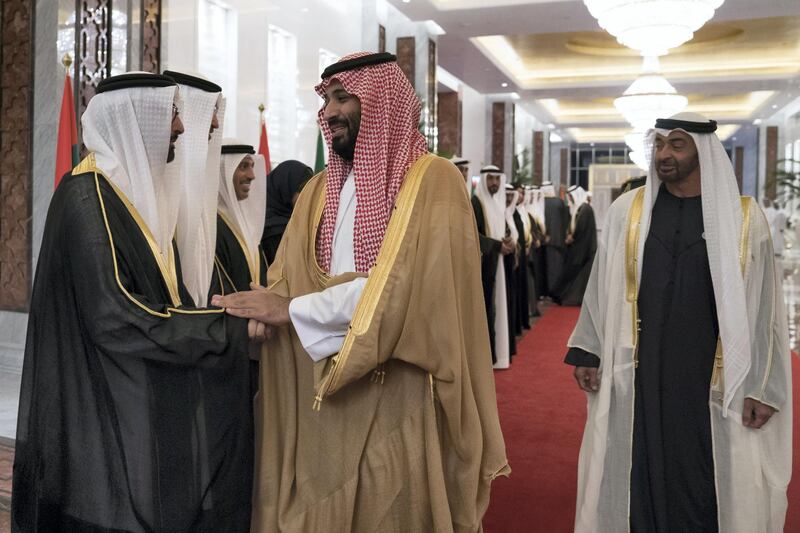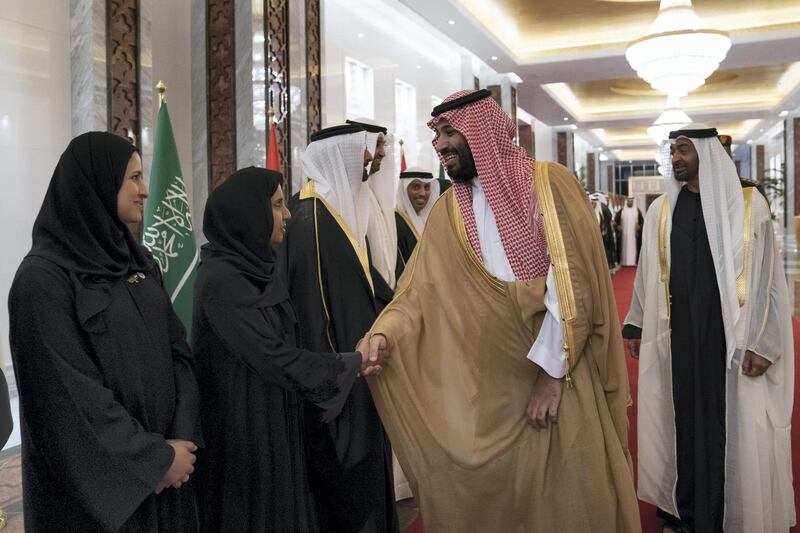The UAE will stand by Saudi Arabia “through thick and thin”, Sheikh Mohammed bin Rashid has said in an interview that focused on the country's relationship with Riyadh as its crown prince visited Abu Dhabi.
"We stand with Saudi Arabia though thick and thin and our bilateral ties are bolstered under the umbrella of the Saudi-Emirati Coordination Council," the UAE's Prime Minister, Vice President and Ruler of Dubai said in an interview with Saudi-owned Asharq al Awsat newspaper.
The comments came the day after Saudi Arabia’s crown prince, Mohammed Bin Salman, visited the UAE capital in the first foreign trip since the murder of journalist and critic of Saudi policy, Jamal Khashoggi.
While the kingdom has arrested what they say is a cabal of rogue operators suspected of being behind the killing in the Saudi consulate in Istanbul, the fact that senior intelligence and palace officials were implicated has put pressure on Riyadh to uncover the extent of the conspiracy.
The government has categorically denied that the crown prince had any involvement or prior knowledge of the killing.
"We in the kingdom know that such allegations about the crown prince have no basis in truth and we categorically reject them,” Foreign Minister Adel Al Jubeir said last week.
However, the killing of the former Riyadh insider turned self-exiled critic has put the spotlight on the kingdom.
Abu Dhabi is Prince Mohammed's first stop on a regional tour that is expected to include Bahrain, Egypt and Tunisia. He is also due to travel to Argentina to attend the G20 summit in the coming week.
Sheikh Mohamed bin Zayed, Crown Prince of Abu Dhabi and Deputy Supreme Commander of the Armed Forces, welcomed the Saudi crown prince on his arrival on Thursday. The two leaders discussed relations between their countries, which Sheikh Mohamed hailed as "an exceptional role model for brotherly ties".
Prince Mohammed also visited the Yas Marina Circuit where the Abu Dhabi Grand Prix is being held this weekend.
In his interview, published on Saturday, Sheikh Mohammed bin Rashid said that despite tension in the region over Iran, progress had not stopped.
“Tension is nothing new in our region, it has been almost constant for 40 years and despite that the wheel of construction and development has not stopped and investment inflows have not stopped,” he said. “Undoubtedly, tensions cloud outlook and spread fear and investors take this into account but they also take into consideration the economic feasibility of investments.”
This would make investors “more cautious” but would not stop their search for favourable opportunities. Sheikh Mohammed said the GCC was becoming increasingly attractive for foreign direct investment and this was due to opportunities opening up as the economies develop and modernise.
One such avenue for development is the Saudi-Emirati Coordination Council – a body that first met last June and aims to boost co-operation between the countries through joint projects – which Sheikh Mohammed said has so far undertaken 44 joint strategic projects. “We aspire to build an integrated model that supports the Gulf co-operation journey and joint Arab activity,” he said.
______________
Read more:
Saudi-Emirati Co-ordination Council meets in Jeddah
Saudi-Emirati Co-ordination Council: all you need to know
Updated: Sheikh Khalifa forms joint military alliance between UAE and Saudi Arabia
______________
On the rapid development and change taking place in Saudi Arabia under Prince Mohammed as he pushes his ambitious Vision 2030 plan, the ruler of Dubai said he saw there was a lot of work to be done but that he was confident it would be achieved.
“I am optimistic and hopeful of the development process and the vast modernisation taking place in the kingdom [of Saudi Arabia],” he said. “The reality is that Vision 2030 necessitates our brothers work night and day to implement the vision’s plans, projects and programmes. They are capable of that and they are aware that the goals of the vision are not a mere choice but a necessary recipe to confront the current and future challenges.”
He pointed out that half of the Saudi population was under 30 years old and therefore job creation, expanding housing stock and building infrastructure was crucial for the government.
"Before that, they need modern education and an open environment for change and modernisation." With global changes taking place, a diversification away from oil and gas was crucial, he said.
